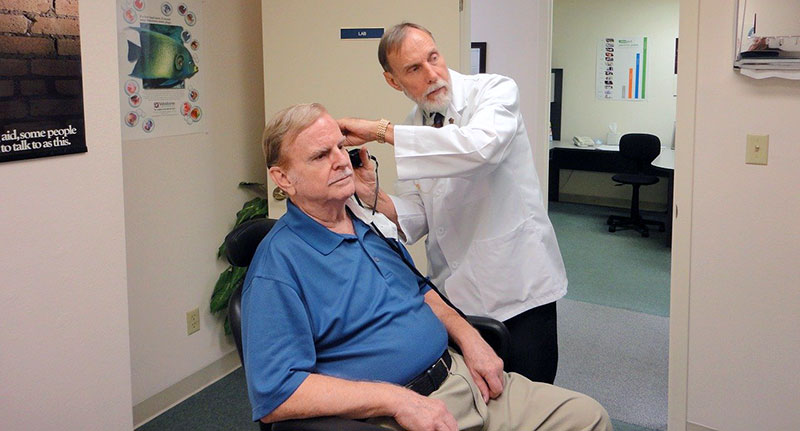
So you’ve come to terms with the idea of your hearing loss, and you are in the process of purchasing your first pair-congratulations! When a person has a hearing test and an examination that determines the need for hearing aids, that first appointment back is generally the time to try on your hearing aids. Typically the hearing aid fitting process comes after a hearing examination and test, and while a hearing aid fitting is never a cause for concern, it helps to have an idea of what to expect. Knowing what to expect can help you prepare for your appointment and can help you formulate a list of questions to ask.
What Can I Expect During a Hearing Aid Fitting?
-
The first appointment after your hearing test and examination comes the hearing aid fitting process. This is the time to try on your hearing aids and test them out with your audiologist’s help. During this appointment, your audiologist can fine-tune your hearing aid so you can practice using them in the presence of a professional-should you need any assistance. Since there is an adjustment period for hearing aids, it helps to get as much practice as possible with an audiologist present, in case you need your device adjusted or have any questions to ask.
-
Depending on how everything goes during the fitting process, the appointment times for a hearing aid fitting can range from 30 minutes to two hours. Audiologists know that this process can take some time, especially if you need to make a lot of adjustments to your device, so don’t even think about rushing through. Your hearing aid must be fine-tuned to your needs, especially if you want to be satisfied with your investment (which you should!).
-
Besides helping you learn how to use your hearing aid, an audiologist will also use this time to educate you on how to maintain your hearing aids. Hearing aids are expensive, and can directly affect your quality of life, so you must know how to properly care for and maintain your hearing aids so you can keep them working properly. This is the time to learn how to keep your device dry, how to charge or replace the battery, how to store your hearing aids, how to clean them, etc. It can help to write down what your audiologist tells you, so you don’t forget!
-
The best part about not needing to rush through your appointment is you will have plenty of time to ask questions. Don’t worry about “wasting” time, as no question is a stupid question (an audiologist has heard it all!), so don’t hold back. Ask away!